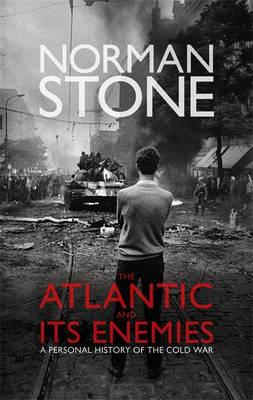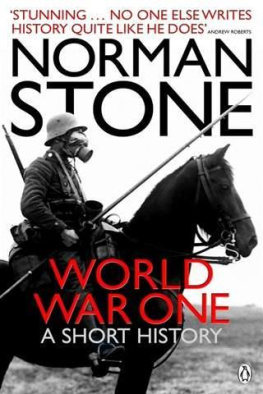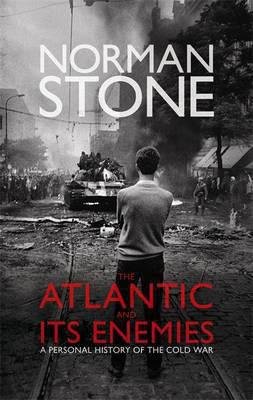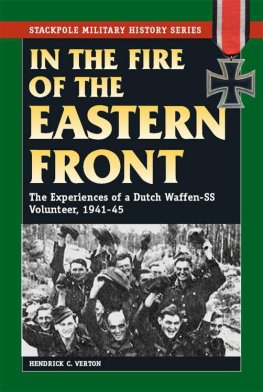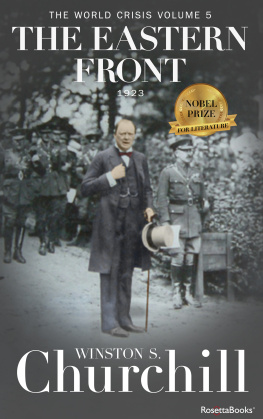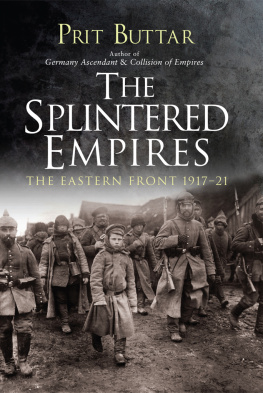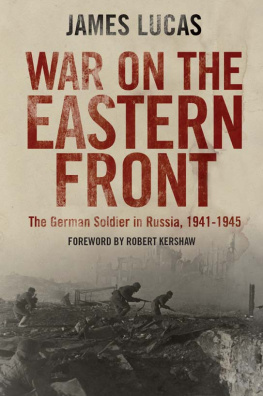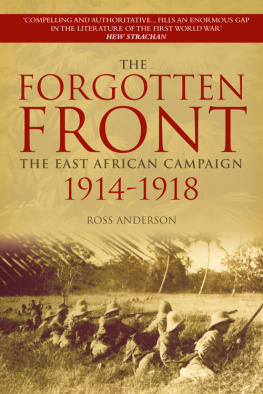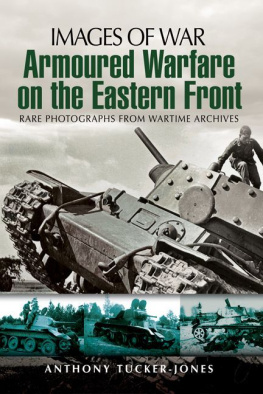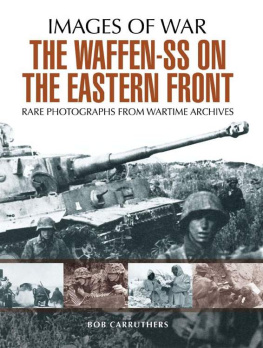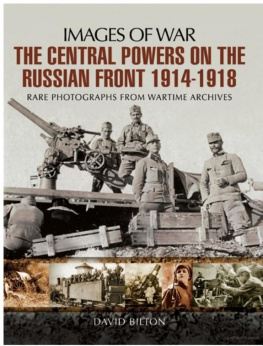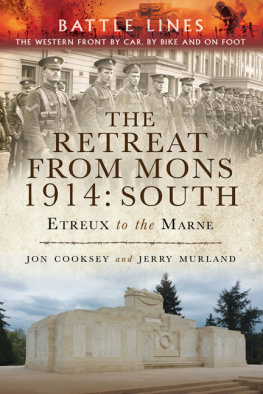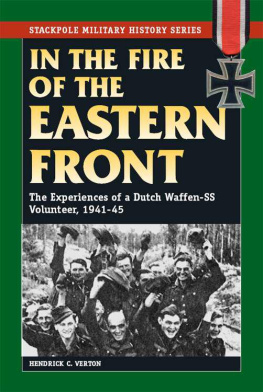Norman Stone - The Eastern Front 1914-1917
Here you can read online Norman Stone - The Eastern Front 1914-1917 full text of the book (entire story) in english for free. Download pdf and epub, get meaning, cover and reviews about this ebook. year: 1998, publisher: Penguin, genre: History. Description of the work, (preface) as well as reviews are available. Best literature library LitArk.com created for fans of good reading and offers a wide selection of genres:
Romance novel
Science fiction
Adventure
Detective
Science
History
Home and family
Prose
Art
Politics
Computer
Non-fiction
Religion
Business
Children
Humor
Choose a favorite category and find really read worthwhile books. Enjoy immersion in the world of imagination, feel the emotions of the characters or learn something new for yourself, make an fascinating discovery.

- Book:The Eastern Front 1914-1917
- Author:
- Publisher:Penguin
- Genre:
- Year:1998
- Rating:4 / 5
- Favourites:Add to favourites
- Your mark:
- 80
- 1
- 2
- 3
- 4
- 5
The Eastern Front 1914-1917: summary, description and annotation
We offer to read an annotation, description, summary or preface (depends on what the author of the book "The Eastern Front 1914-1917" wrote himself). If you haven't found the necessary information about the book — write in the comments, we will try to find it.
The Eastern Front 1914-1917 — read online for free the complete book (whole text) full work
Below is the text of the book, divided by pages. System saving the place of the last page read, allows you to conveniently read the book "The Eastern Front 1914-1917" online for free, without having to search again every time where you left off. Put a bookmark, and you can go to the page where you finished reading at any time.
Font size:
Interval:
Bookmark:
PENGUIN BOOKS
THE EASTERN FRONT 19141917
Norman Stone lives in Oxford and Istanbul. He is the author of Hitler, Europe Transformed and World War One: A Short History. He has taught at the universities of Cambridge, Oxford and Bilkent, where he is now Director of the Turkish-Russian Centre.
NORMAN STONE

THE EASTERN FRONT 19141917

PENGUIN BOOKS
PENGUIN BOOKS
Published by the Penguin Group
Penguin Books Ltd, 80 Strand, London WC2R 0RL , England
Penguin Group (USA) Inc., 375 Hudson Street, New York, New York 10014, USA
Penguin Group (Canada), 90 Eglinton Avenue East, Suite 700, Toronto, Ontario, Canada M4P 2Y3
(a division of Pearson Penguin Canada Inc.)
Penguin Ireland, 25 St Stephens Green, Dublin 2, Ireland
(a division of Penguin Books Ltd)
Penguin Group (Australia), 250 Camberwell Road, Camberwell, Victoria 3124, Australia
(a division of Pearson Australia Group Pty Ltd)
Penguin Books India Pvt Ltd, 11 Community Centre, Panchsheel Park, New Delhi 110 017, India
Penguin Group (NZ), 67 Apollo Drive, Rosedale, North Shore 0632, New Zealand
(a division of Pearson New Zealand Ltd)
Penguin Books (South Africa) (Pty) Ltd, 24 Sturdee Avenue, Rosebank, Johannesburg 2196, South Africa
Penguin Books Ltd, Registered Offices: 80 Strand, London, WC2R 0RL , England
www.penguin.com
First published by Hodder & Stoughton 1975
Published in Penguin Books 1998
Copyright Norman Stone, 1975
Introduction to the Penguin edition copyright Norman Stone, 1998
All rights reserved
The moral right of the author has been asserted
Except in the United States of America, this book is sold subject to the condition that it shall not, by way of trade or otherwise, be lent, re-sold, hired out, or otherwise circulated without the publishers prior consent in any form of binding or cover other than that in which it is published and without a similar condition including this condition being imposed on the subsequent purchaser
ISBN: 978-0-14-193885-1
For J. H. Plumb
.
The maps are based on those reproduced in The History of the First World War published by Purnell for B.P.C. Publishing Ltd.
A common-sense system of transliteration from Cyrillic script has been used throughout. I have used the English y as a consonant, and left i to cover both Russian vowels approximating to it. I have omitted apostrophes signifying soft or hard signs. Kh and zh signify, as usual, ch in loch and j in jardin.
I have tried to be consistent as regards place-names that have changed several times in the course of this century, but it is difficult. My own inclination is to call every town by its modern name, but sometimes this becomes strikingly anachronistic (e.g. Olsztyn for Allenstein in East Prussia) and I have sometimes made concessions from my own rule.
When it came out in 1975, this book was something of a pioneer. In the West, there had been, in the sixties, a huge wave of interest in the First World War (my own interest in it was sparked off partly when I found Churchills World Crisis in the school library, and particularly when, in 1958, I read Leon Wolffs In Flanders Fields). But from the Soviet Union, not much came out. Every belligerent country, including shattered Turkey, produced lengthy official histories and the archives were remarkably well-ordered to produce them. However, there was nothing comparable from the Soviet Union, the military archives of which remained, mainly, sealed. Of course the whole subject was vast and very difficulteven the Germans had not completed their official history by the end of the Second World War-and it cannot have helped that some qualified military historians were purged by Stalin in the thirties. Whatever you said about the Tsarist Russian army might give you trouble. If you wrote in a positive, patriotic way about it, you might offend against the Communist orthodoxy, by which everything Tsarist was condemned. If, on the other hand, you concentrated on the negative side, you could offend against the nationalist line which emerged with Stalin and which flourished under Brezhnev. Even the obvious sources were quite difficult to obtain; I was told, some years later, that The Eastern Front was listed in an East German catalogue, but could not be read without permission. Alexandr Solzhenitsyn had great difficulty in assembling various books and articles for the enormous, semi-demi-fictional account of the First World War and the Revolution, The Red Wheel, that he was planning, because the subject was still, in the seventies, taboo. Nowadays, we might of course expect a proper history of the First World War from Russias new historians, but in present circumstances they all have other things to do. So, for the moment, my own book is still a filler of the gap.
When I wrote it, in the later sixties and early seventies, I could not have obtained access to Russian archives. However, there was a great deal in the West. The Hoover Institution in Stanford, California, collected documents from the Russian emigration; its founder, the later President Hoover, had been in Russia after the Civil War to organize famine-relief and he collected documents in return for food-some of the documents very revealing indeed. In Paris, the Bibliothque de documentation internationale contemporaine had a vast amount, and at home in England I found a remarkable number of books, whether in Cambridge University Library, where Professor Elizabeth Hill had built up astonishing reserves, or the British Museum and that enduringly splendid institution, the Imperial War Museum. I could also use the records of British and French observers, some of whom wrote with great talent, and of course there were the archives of the Austro-Hungarian army, in Vienna, where I had spent three years. These archives survived remarkably well, and like other British historians, I had been given a privileged run of them by a very friendly and helpful staff. The German side of things could be studied from printed sources only, although, as it turns out, quite a number of the documents on which the German official history was to be based were taken to Moscow after capture in 1945. I shall be interested to see whether my accounts of some of the battles-sometimes hunches-stand up. I was flattered to discover that the most up-to-date account on the side of the Central Powers, Manfred Rauchensteiners Der Tod des Doppeladlers (1993), bears out what I said about the calamitous miscalculations made over mobilization in 1914.
As The Easten Front moved on, it became much more of a Russian than an Austro-Hungarian or German book. Its focus had originally been on the battlefields, and reconstructing events there was laborious enough, but quite quickly I became interested in the functioning of the army as an institution, and especially in the Russian economy at war. In the sixties, historians were interested in modernization and so, disastrously, were English and Scottish local authorities and architects, who tore apart our Victorian cities in order to create what they hoped would be little Chicagos. The American, Walt Rostow, had produced the fashionable optimistic American book of the decade when he published his book about industrial take-off saying that places became modern when they were able to save ten per cent of their national incomes, and as an undergraduate at Gonville and Caius College, Cambridge, taught by the legendary Neil McKendrick, I had become aware of the importance of industrial revolutions in general. There was a Russian equivalent, of a lurid kind.
Next pageFont size:
Interval:
Bookmark:
Similar books «The Eastern Front 1914-1917»
Look at similar books to The Eastern Front 1914-1917. We have selected literature similar in name and meaning in the hope of providing readers with more options to find new, interesting, not yet read works.
Discussion, reviews of the book The Eastern Front 1914-1917 and just readers' own opinions. Leave your comments, write what you think about the work, its meaning or the main characters. Specify what exactly you liked and what you didn't like, and why you think so.

